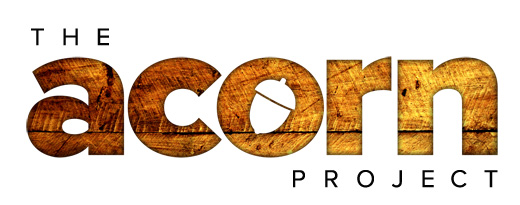Written by Marisol Dahl
It's a little crazy to think that it's only early October and I've already hit midterms season in college. The clock is ticking and in more ways than one. By next May I'll have my cap and gown packed up, a job (haha, maybe), and an onslaught of student loan payments. Out of the college dorm and into the real world.
For those times of life transition, it's time to get serious about money-making. Yes, I went straight to the "m"-word. While money can't buy happiness, it is kind of nice to have when navigating exciting new changes.
And what better way to make money than by doing what you already know how to do? Ramit Sethi is the man when it comes to doing exactly this. Author of the book and blog I Will Teach You To Be Rich, Ramit is an expert when it comes to doubling down on your skills, turning a profit, and rocking your finances. We're excited to share his insight on freelancing and how anyone—yes, anyone—can cash in on their skills.
Is freelancing right for you? Q&A with Ramit Sethi:
Why should someone consider freelancing?
Ramit: The first thing most personal finance gurus will tell you about money is to cut back—be frugal! Stop wasting your money on lattes! The truth is that you can’t out-frugal your way to rich. While the “experts” focus on cutting costs, that’s only one part of the puzzle to living a Rich life. There’s a limit to how much you can save, but there’s no limit to how much you can earn.
Freelancing (or, taking your skills and turning them into income) is one of the easiest ways to get started earning more money, and it’s something you can do without quitting your day job, meaning very low risk. Most freelancing jobs—no matter how unique you think you are—can be priced easily, and the work-to-income is very clear compared to uncertain income-generating strategies like productization.
What are the typical objections you see people have regarding earning money on the side?
Ramit: Although it’s easy to get excited about earning more money—who doesn’t want to be richer?—we will always run into doubts about why we can’t do it:
- “I don’t have enough time”
- “That might work if you have an Ivy League education but I’m just a humble [occupation]…”
- “Maybe if you live in SF or NYC…”
- “Maybe if you’re a single guy, but I have a family…”
All of these are reasonable excuses, and some might be legitimate, but the objections to earning more are less about external barriers and more about your mindset.
I’ve seen people earn thousands in extra income as parents who live in Podunkville. I even have a friend who started a side job while working at an extremely demanding and prestigious full-time job. People can earn a great side income with ordinary jobs and incomes all because they took the initiative to do it.
What’s the biggest mistake people make when they try to start a side business on their own?
Ramit: I think the biggest mistake people make is spending too much time in the beginning “playing business.” They do things they think they “should” do but will never pay. They’ll get excited about an idea, and their next step is to launch a website, create a Facebook page, and buy 1,000 business cards. But then what?
After they’ve wasted a lot of time and money, they still don’t have one paying client to show for it and their excitement ends up withering away after a couple months. They end up blaming their failed attempt on others instead of their approach.
So if that doesn’t work, what SHOULD people do?
Ramit: Instead of random tactics that we see fail over and over again, there’s a more effective way to start that changes the entire approach.
The first step is finding a profitable idea.
My team and I have spent over 10 years of extensive research to bring you the exact tools and techniques that can help you identify what you’re already good at. Sometimes, you’re so good at something —it comes so naturally to you—that you don’t even realize it’s a skill. Then, you check to see if it’s a profitable idea before you spend months! Almost nobody realizes that they could “pre-test” an idea for profitability. This sounds simple but is actually a totally different approach than most people take.
The next step is to turn the idea into side income.
This is where a lot of people started doing random things they'd read about, like starting Twitter or Facebook pages. And again, they’d fall back into the same pattern! Launch something—this time, a blog with Google ads—and try and try to somehow turn it into lucrative side income.
What they actually need are less random tactics and “Top 10 Ways to Make Money from Home” lists, and instead, a system for testing your idea for profitability before you commit hundreds of hours. The right system can tell you whether you’re on the right track or not, so if something’s not working, you’ll know exactly what to do to fix it and get back on track. With the right system in place, you can grow that side income as much—or as little—as you want, with your available time.
What advice can you give to people who are ready to start earning more money?
Ramit: Most people reading this can agree that the thought of starting a side business isn’t just about money. It’s about living a life where you can control your income and your time. You could use the extra money to tackle your goals, to pay off debt, save more, or spend on the things you love. And freelancing is one of the easiest ways to get started.
"Cash In" On Your Skills
Want to freelance but don't know where to start? Ramit can help you earn your first $1,000 (and more) with his Earn1k Idea Generator Tool. Nail down a viable, profitable and fun freelance idea—you can afford to make a career change.
About Marisol Dahl
Marisol is currently a Sociology and Education Studies major at Yale University. A longtime New Yorker, she is interested in pursuing a career in education and child advocacy. Marisol started her blog in 2011 as a way to document her college years and beyond. When not running around campus and catching up with her school reading, she enjoys spending time with her family, reading dystopian fiction and volunteering in her community. She can be reached on Twitter at @marisoldahl.


 Jenny Blake is the bestselling author of
Jenny Blake is the bestselling author of 

